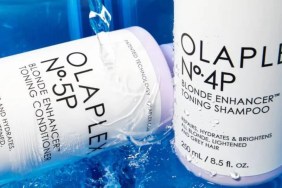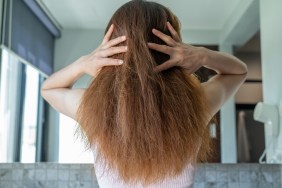Think changing your hair color is as easy as one, two, three? Not if you want to do it safely. We spoke with Nunzio Saviano master colorist Stephanie Brown about prepping our hair for summer, why you might want to eat oysters and why protecting your hair from the sun is key.
theFashionSpot: What are your tips for people who want to lighten their hair but minimize damage if they are going from a dark color?
Stephanie Brown: It’s best to go lighter slowly to minimize damage, especially if you have dyed your hair dark. If you are going for a drastic change, I recommend you soften your base color slightly to avoid blotchy color and then do a heavy highlight throughout. If you continue to do this, in about three to six months you will keep getting lighter until you’ve achieved the level of lightness you want. You can try to lighten the hair in one sitting, however, I do not recommend that because a lot of damage can be done and the color will be more unpredictable, meaning you may have bands of different colors through the hair. If you are just going a few shades lighter, highlights alone should be fine. It is best if it is done in the salon with a professional for proper tone and hue.
tFS: How hard is to go back to a dark color once you’ve gone blonde? Is it safe to do at home?
SB: It can be difficult sometimes. If you are very light blonde (i.e. platinum), it can be challenging. If that is the case, always remember you must add warmth into your hair first before putting the shade of brunette you want on. If you do not do this, your hair can look muddy or grayish or even greenish and will lack shine. The same thing applies if your highlights are really pale. Again, this is usually best if it’s done by a professional to avoid mistakes.
tFS: Does protecting your hair from environmental damage depend on the color of your hair? Does it depend on whether you have all-over color or highlights?
SB: You should always protect your hair in the sun no matter what! Whether hair is dyed or not, the sun can be damaging to texture and tone. However, if you have a lot of color work done to your hair and don’t protect it, there is a greater chance of oxidation. Oxidation can make your hair turn brassy, leave you with a solid dimensionless look or it can lighten up completely and all the work you’ve paid for is now gone.
tFS: How should you go about protecting hair from sun, salt, etc.?
SB: Hats are the best protector from the sun, there are some shielding sprays that work but you must realize that they are like sunblock, if you don’t reapply, they stop working. To protect your hair in the water from salt or chlorine, wet your hair down with bottle or tap water and then use a conditioner all over your hair. I actually love to use coconut oil to help protect hair. This creates a barrier between the water and your hair, minimizing the damage and it’s also conditioning at the same time so you avoid having dried out hair.
tFS: What are some of your favorite haircare brands?
SB: I really love Kerastase for the shampoos and conditioners, they are great at repairing and maintaining the health and quality of your hair color. Kerastase also makes a great product that I use in the salon called Fusio Dose, it helps the color stay longer and brighter. The Fusio Dose can also be used at home and lasts for up to 12 shampoos. I also like doing some all natural things like baking soda or baby powder as a dry shampoo and coconut oil or mango butter (which is a little harder to find) as a hair mask.

tFS: How should our haircare routine differ when it’s warm versus when it’s cold?
SB: When it’s warm out, we need to be a little more protective of our hair because the sun and heat are the biggest components of oxidation. However, as far as shampooing and masks, they generally stay the same. Just do it more often in the summer months.
tFS: Is it safe to use products that aren’t explicitly marked for colored hair, if your hair is colored?
SB: It’s not unsafe if the product says moisturizing or heat protecting. You will need to steer clear of products that have alcohol in them or if they say cleansing, clarifying or detoxifying. But if you are unsure, stick with products that specifically say color safe.
tFS: Do you believe in supplements for hair health?
SB: I love taking fish oil and vitamin E, which helps your hair grow and makes your hair shiny.
tFS: Any dietary recommendations for hair health?
SB: Salmon is great for keeping hair strong, walnuts are rich in biotin and vitamin D, which is good for keeping your hair color shiny and rich. Oysters help with hair loss and dry scalp. Also, spinach, blueberries and sweet potatoes help with the strength and shine of your hair and, of course, eating healthy in general with minimal fatty, unhealthy foods helps.







